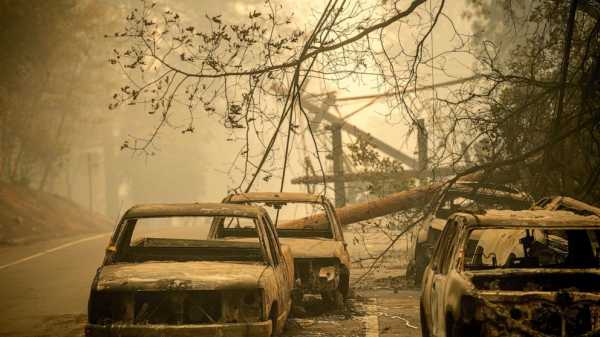
NEW YORK — The destruction and suffering caused by the Maui wildfires in Hawaii prompted many to immediately look for ways to help.
However, experts say immediate donations may not be the most useful following a natural disaster like the Maui wildfires. They suggest standing by a week or two until needs are assessed and support lines have been established. But they know that some people will not be able to wait.
Here’s what you need to know about getting your donations to the people you are trying to help.
There are so many solicitiations to help the people of Hawaii. What groups should get priority right now?
Experts recommend donating to nonprofits based on Hawaii that have provided rapid response services in the past.
Hawai’i Community Foundation has raised more than $17 million as of Friday for its Maui Strong Fund, which is “providing financial resources that can be deployed quickly.” Though the foundation says its support will evolve, initially, it will focus on providing food, shelter and immediate financial assistance.
The Maui United Way says all donations will “provide direct relief to families and nonprofits directly affected” by the wildfires, offering a place to donate and apply for help on its website.
How can you guarantee donations reach those affected by the Maui wildfires?
Regine Webster, vice president of the Center for Disaster Philanthropy, generally recommended giving to organizations with deep local ties and knowledge of the affected communities.
“Wait a week, wait two weeks, to understand where the greatest needs are,” Webster said. “Then, look toward organizations that are really meeting those needs, again, prioritizing organizations with specific disaster expertise and organizations that are local in nature.”
Many national and international organizations have already deployed to Maui to help. So if you already donate to a group like World Central Kitchen or the American Red Cross, you can simply continue to donate to them.
I want to donate to a specific person or family through a crowdfunding campaign. How can I make sure their campaign is legitimate?
The crowdfunding site GoFundMe has vetted hundreds of fundraisers for individuals and families who lost property or were injured in the fires, verifying the identities of the organizers and pledging to take additional verification steps before releasing the funds to the organizer.
As of Monday, GoFundMe said it had collected more than $13 million for those impacted by the Maui wildfires, from more than 100,000 people across all 50 U.S. states and 100 countries.
Hawaii Attorney General Anne Lopez warns donors to stay away from people rushing you to make a donation, asking you to donate with cash, gift card or on Cash App or Venmo. She also says to look for specifics about how your donation will be used.
Can donations arrive too quickly?
Yes. The needs of those in an emergency situation are different from those rebuilding after a natural disaster.
The Most Reverend Larry Silva, the Catholic bishop of Honolulu, said many offered resources to those affected by the wildfires. “The problem at this point is getting supplies to those in need, since many evacuated to the West of Lahaina, where access from the rest of the island is extremely limited,” he said in an email.
Donating home furnishings, for example, is very useful once families have been permanently relocated. However, at this point, when people are living in shelters, they are not useful and storing them creates costs and issues for nonprofits, especially on an island where storage space is limited.
Why is giving two weeks or a month after a disaster so important?
Experts say donations tend to drop off after the initial burst of media attention ends, even though many of the needs of those affected haven’t been met yet.
Waiting a few weeks also allows the government and nonprofits to figure out what rebuilding priorities have been funded and which haven’t. Later donations can be used to fund programs addressing pressing needs.
TV icon Oprah Winfrey, a part-time Maui resident, said she will be there “for the long haul, doing what I can” to rebuild after the wildfires.
“My biggest concern is how do you get the resources to the people who actually need it,” Winfrey told Hawaii News Now.
_____
AP reporters Thalia Beaty and Giovanna Dell'Orto contributed reporting from New York.
_____
Associated Press coverage of philanthropy and nonprofits receives support through the AP’s collaboration with The Conversation US, with funding from Lilly Endowment Inc. The AP is solely responsible for this content. For all of AP’s philanthropy coverage, visit https://apnews.com/hub/philanthropy.
Sourse: abcnews.go.com






